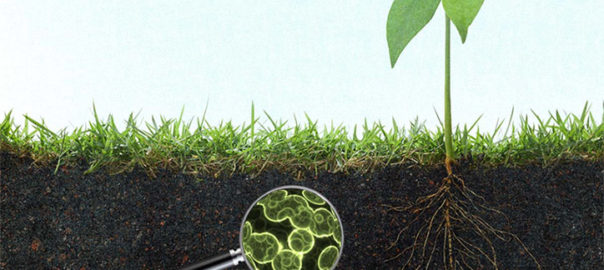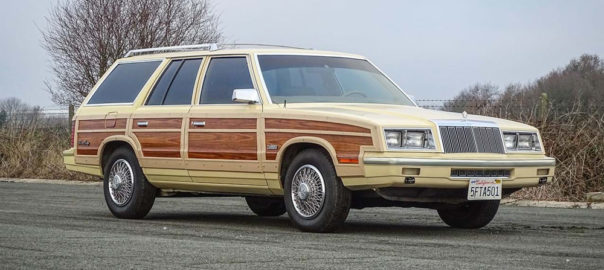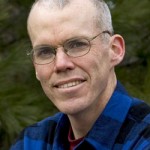Book Review
Last night I visited a local pub with an old friend I hadn’t seen in decades. He’s in town to talk to college students about his new film, What’s An Economy For, Anyway? It’s a good question. And John de Graaf, the filmmaker, comes up with a good answer. He says an economy is for “the greatest good for the greatest number over the long haul.”
[amazon-product align=”left”]1576753573[/amazon-product]
De Graaf is best known for his film (and book) [amazon-product text=”Affluenza: The All-Consuming Epidemic” type=”text”]1576753573[/amazon-product], one of the first popular works to point out that our obsessive quest to amass more stuff (and the money to buy it) is destroying our communities, our health, and our planet. It came out before the U.S. was confronted with a sudden, drastic cure to its “affluenza” in the shape of an economic meltdown that is seriously crimping the buying habits of the American consumer.
An upside to the downside of the recession?
Over a glass of Merlot, de Graaf told me there’s an upside to the downside of the recession (or “jobless recovery”, as it’s being termed now): health improves during recessions. As people spend less, they have more time for proven health boosters such as sleeping more, volunteering in their community, and getting together with friends and family. They drive less, smoke less, drink less, eat less artery-clogging rich foods — and of course, have less work-related stress. And that’s despite the fact that unemployment has often been associated with higher rates of suicide, domestic violence and chronic illness, not to speak of the potential consequences of losing one’s health insurance.
In other words, maybe “less is more”, at least after we are assured a basic package of goods and services to support our well being: decent health care, housing, education, a living wage job and a healthy environment. That’s what another new book of that title, edited by John de Graaf’s good buddies Cecile Andrews and Wanda Urbanska, says.
[amazon-product align=”right”]0865716501[/amazon-product]
[amazon-product text=”LESS IS MORE: Embracing Simplicity for a Healthy Planet, A Caring Economy, and Lasting Happiness” type=”text”]0865716501[/amazon-product] brings together a host of writers who have contributed much to the discourse about “what’s an economy for”. Aside from de Graaf, who contributes a chapter with that title, they include Bill McKibben (DEEP ECONOMY), Ernst Callenbach (ECOTOPIA), David Korten (AGENDA FOR A NEW ECONOMY) and Juliet Schor (THE OVERSPENT AMERICAN).
Schor is cofounder of The Center for the New American Dream, a non-profit dedicated to helping Americans “consume responsibly to protect the environment, enhance quality of life, and promote social justice.” Her chapter in Less Is More is called “Down-shifting To A Carbon-Friendly Economy.”
[sniplet amazon search]
She starts out with an idea she calls the “third rail in American politics”: that per capita consumption has to go down in the US “to achieve sustainable levels of greenhouse gas emissions”. To those who claim that sustainability can be achieved simply by increasing efficiency, she points to the paradox that as efficiency rises, so does consumption (e.g. more efficient cars = more miles driven). She also says those who put their faith in such greening methods as “Factor Four” and zero waste are overly optimistic.
But, Schor says, we can “downshift” to an economy that “meets people’s needs”, allows for a “healthy, well-functioning” private enterprise economy, and achieves carbon neutrality. She says that by workers trading money for time, consumer demand falls, thereby lowering the stress on the environment. Employment can actually rise, by decreasing per worker hours and spreading work among more people. Of course, per hour compensation would have to rise, or be compensated for by greater social provision of needs like health care, housing subsidies, and education. Countries such as the Netherlands, Germany and Denmark are all models of prosperous capitalist economies with fewer work hours and lower per capita consumption.
[sniplet amazon bookstore widget]
Downshifting our economy to reach carbon neutrality is a must if we are to adapt our communities to the double whammy of climate chaos and resource depletion. So says a short but pithy book by David Holmgren, one of the originators of permaculture as an idea. [amazon-product text=”Future Scenarios: How Communities Can Adapt to Peak Oil and Climate Change” type=”text”]1603580891[/amazon-product] lays out four options human societies face.
The “Brown-Tech” scenario happens with extreme climate change coupled with a slow decline in fossil fuel use. It involves “corporate fascism” imposing top down solutions to the crises, wringing every last drop out of fossil fuel resources, with authoritarian governments enforcing stability as living standards for the majority drastically decline.
The Green Tech scenario results if climate change turns out to be more benign. A “distributed powerdown” slowly reduces fossil fuel use while increasing conservation of resources and technological innovation. (For a fascinating — and optimistic — exploration of what this could look like, check out Harvey Wasserman’s book, [amazon-product text=”SOLARTOPIA! Our Green-Powered Earth, A.D. 2030″ type=”text”]0975340247[/amazon-product].)
The Earth Steward scenario involves a rapid decline in fossil fuel use due more to economic collapse and the resulting political “stresses” (wars) than to climate change, which is mild also in this scenario. But the resulting collapse of society engenders a bottom-up renewal, with re-localized economies and a simplified technology base.
The final Lifeboat scenario is the most pessimistic. In it, climate catastrophe and fossil fuel depletion lead to widespread death through famine, wars and climate disasters, with a halving of global population. Human civilization is in triage mode, with oases of sustainable social organization, knowledge and technology preserving the possibility for some future recovery in the long term.
Faced with this dire prediction, perhaps the shocked reader will want to turn to Ralph Nader’s new book, [amazon-product text=”“ONLY THE SUPPERRICH CAN SAVE US!”” type=”text”]1583229035[/amazon-product]. (He’s an upcoming guest on Writers Voice) Maybe the planet’s lifeboat will turn out to be — a yacht.








